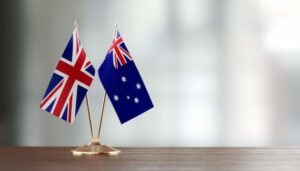
On Thursday, the Verkhovna Rada completed the internal procedures necessary for the entry into force of the Agreement on Political Cooperation, Free Trade and Strategic Partnership between Ukraine and the United Kingdom in terms of trade liberalization: by 2029, all import duties and tariff quotas in bilateral trade are to be abolished, the Ministry of Economy reported.
It is specified that the agreement will be in effect until March 31, 2029, with the exception of two commodity items – eggs and poultry products, the liberalization of trade with which will be extended for two years – until April 1, 2026.
“Ukraine will also have the opportunity to plan export logistics more flexibly and increase exports of high value-added goods in the future,” the Ministry of Economy believes.
The ministry predicts a revival of trade between Ukraine and the UK and an increase in exports of domestic products traditionally supplied to the British market by domestic producers. In particular, these include flour, grain, dairy products, poultry and semi-finished products, tomato paste, honey, corn, wheat, juices, sugar, etc.
The Ministry of Economy reminded that Agreement No. 3 in the form of an exchange of letters amending the Agreement on Political Cooperation, Free Trade and Strategic Partnership between Ukraine and the United Kingdom of Great Britain and Northern Ireland in terms of commitments to trade liberalization was ratified by the Rada on February 8 this year.
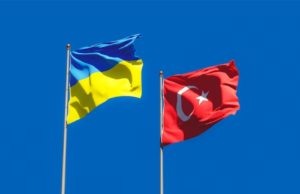
Turkey has ratified a free trade agreement with Ukraine, Anadolu quoted the country’s official newspaper as saying on Friday.
The agreement was signed on Feb. 3, 2022, and President Recep Tayyip Erdogan approved the deal and its annexes on Thursday.
Turkey-Ukraine bilateral trade volume in 2023 totaled $7.3 billion, Turkish Trade Minister Omer Bolat said Thursday after meeting with Ukraine’s First Deputy Prime Minister Yulia Sviridenko.
According to him, the trade volume is expected to increase to $10 billion within a short period of time under the said agreement.
The main areas of trade between the two countries are ferrous metallurgy, machine building, energy, automobile and grain.
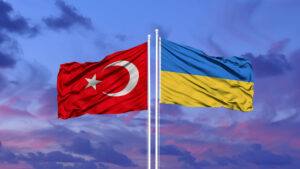
Ukraine and Turkey will ratify the Free Trade Agreement (FTA) in the near future, and after the ratification procedure is completed, the document will enter into force in early 2024, the Economy Ministry said on Wednesday following a meeting between First Deputy Prime Minister and Economy Minister Yulia Svyrydenko and the new Turkish Ambassador Mustafa Levent Bilgen the day before.
“The free trade agreement will also simplify logistics issues, promote the development of Ukrainian business in wartime, and open new prospects in Ukraine for our partners from Turkey,” Svyrydenko was quoted as saying in a press release.
She added that a working group on grain will be set up to discuss global and bilateral trade in this market.
“Ukraine highly appreciates Turkey’s participation in protecting the grain export initiative, which is an important factor in ensuring global food security,” the First Deputy Prime Minister said.
It is noted that the parties are also ready for a constructive dialogue on expanding economic cooperation, in particular, the creation of joint projects in priority sectors of the economy. Strategically important sectors for restoring and attracting private investment are defense, agricultural production and processing, renewable energy, gas production and storage, green metallurgy, environmentally friendly transport, healthcare, and pharmaceuticals.
Svyrydenko added that Ukrainian entrepreneurs are ready to establish joint business with international partners, so the government is using every opportunity to attract additional resources, including for the post-war reconstruction of Ukraine.
“Humanitarian demining is another important area. We need heavy demining vehicles, training for sappers, everything that will help us clear our land as soon as possible. We are open for cooperation and encourage international business to enter Ukraine,” the First Deputy Prime Minister said.
As reported, following 12 rounds of negotiations and a series of expert consultations in 2011-2022, Prime Minister of Ukraine Denys Shmyhal and Turkish Trade Minister Mehmet Mush signed an FTA between the two countries in Kyiv on February 3, 2022. The document will enter into force after ratification by the parliaments of both countries and the exchange of instruments of ratification.

The Cabinet of Ministers approved the draft Free Trade Agreement (FTA) with Turkey at a government meeting on Wednesday.
According to First Deputy Prime Minister, Minister of Economy Yulia Svyrydenko, the agreement will bring an additional 2% of GDP annually.
“The basis of the agreement is the zeroing of duties by Turkey for 10,337 commodity items. This is 95% of the total number of goods. Another 1,348 commodity items will be subject to tariff quotas or duty reduction,” she said, presenting the draft FTA Agreement with Turkey at the government meeting.
Currently, Ukraine exports 1,100 commodity items to Turkey, since Turkey has one of the highest levels of customs protection in the world, she said. At the same time, the level of Ukrainian customs duties is one of the lowest.
“In recent years, we have begun to observe that Ukrainian duties have generally ceased to be a barrier to Turkish goods, while Turkish duties for our goods have been an impenetrable wall for entering their market,” Svyrydenko said.
According to her, Ukraine reserves the right to apply a duty on the export of scrap metal.
“At the same time, Turkey opens the domestic market for our metal. Duties for another 130 commodity items of metallurgy goods have been partially reduced… And additional quotas have been established for 160 metallurgy goods,” Svyrydenko said.
According to her, Ukraine will retain duties on the import of used cars, setting transitional periods of three to five years for vehicles and light industry products. As for the latter, Svyrydenko announced state support in the form of affordable loans for the modernization of equipment for Ukrainian light industry companies.
At the same time, the parties reserve the right to restore the effect of duties through the mechanism of bilateral safeguard measures.
As Svyrydenko said, the review of the agreement shall take place no later than two years later.
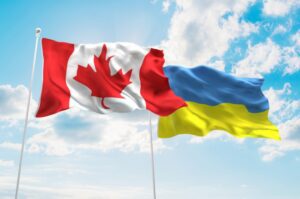
First Deputy Prime Minister of Ukraine, Minister of Economy Yulia Svyrydenko and Minister of International Trade, Export Promotion, Small Business and Economic Development of Canada Mary Ng during an online meeting on January 27 announced the launch of negotiations to modernize the Canada-Ukraine Free Trade Agreement (CUFTA).
“Canada and Ukraine will seek to negotiate new obligations in areas, including services, investment, digital trade, labour, and the environment, while advancing an inclusive approach to trade that aims to facilitate new opportunities for small and medium-sized enterprises,” the Ministry of Economy said in a statement.
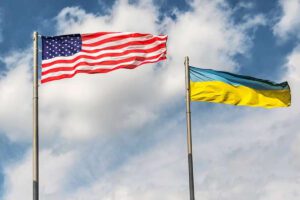
Ukraine expects to start free trade negotiations with the United States during the visit of President Volodymyr Zelensky to the United States, First Deputy Prime Minister, Minister of Economy Oleksiy Liubchenko has said.
“During the president’s visit to the United States, we want to reach an agreement to start free trade negotiations with the United States,” Liubchenko said in an exclusive interview with Interfax-Ukraine.
In addition, Ukraine has carried out preliminary work to expand the free trade area (FTA) with Canada.
“I hope this year we will complete negotiations on expanding the FTA to include services and mutual protection of investments,” the first deputy prime minister said.
He added that Canada is interested in this, since it has great investment potential, concentrated in private pension funds.